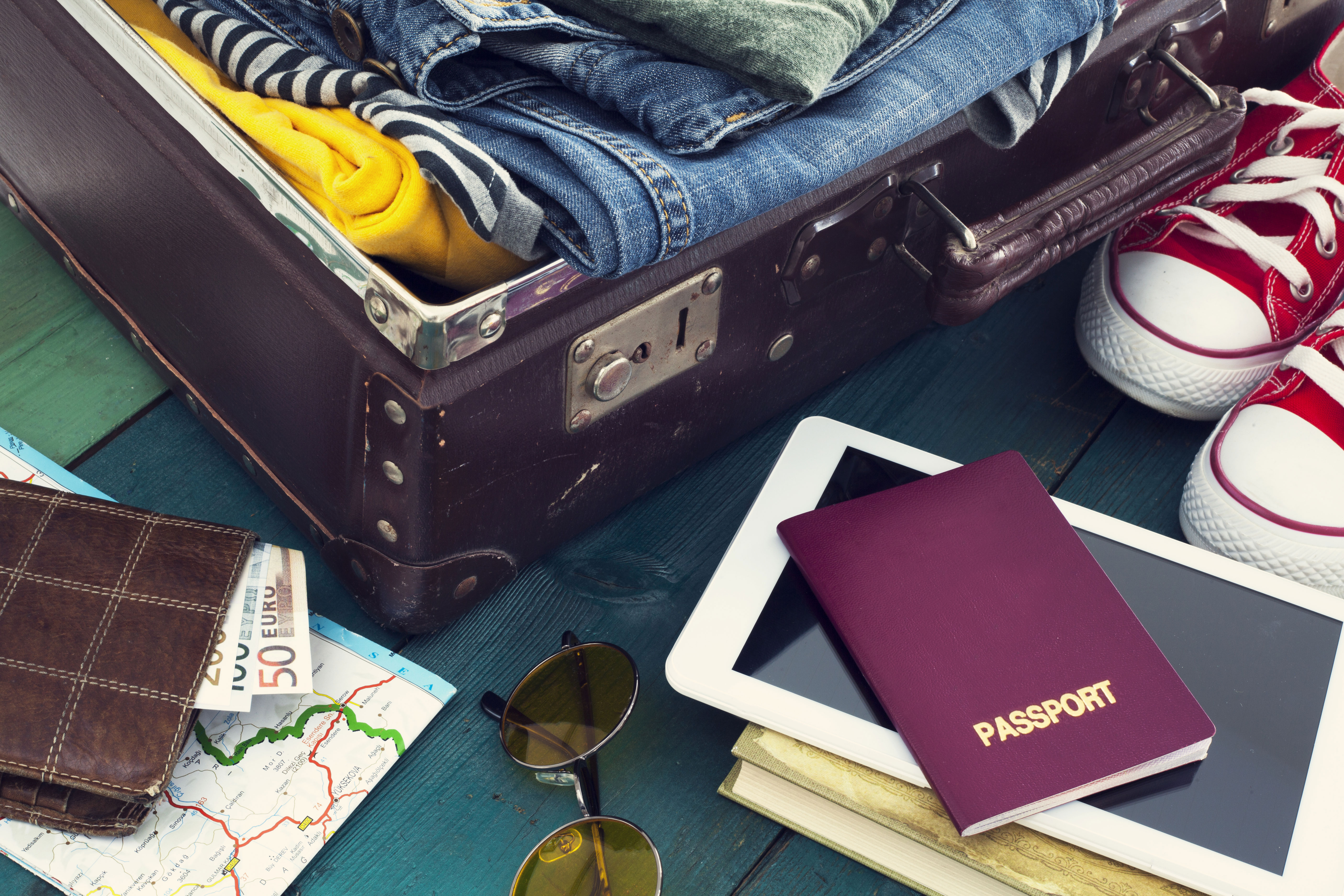How to travel the world without breaking the bank
Money-saving tips to help you see the world

If your wanderlust currently outstrips your wallet, let us show you what you can do to help make your globetrotting dreams a reality.
Getting started
As soon as you start seriously thinking about a trip away, there are things you can do to help make it happen. Yes, we're talking about making cuts.
Don't think we're implying that you've been frittering away your money on things you don't really need (we'd never do that - although our budget planner, which gives you a clear picture of your spending habits, might). But consider this: with your sights set on the trip of a lifetime, making cuts just got a whole lot easier.
Budgeting hack: unique incentives
You might feel like a Monday morning zombie without it, but give up that £2.85 coffee fix over five workdays and in one month you could save £57. That could get you some very affordable flights to European cities on Skyscanner… or 57 nights in Cambodia!
Travel tips
When it's time to look at some flights, do it right:
Compare
If you haven’t heard of Skyscanner, make it your first port of call. Comparing millions of flights and handily listing them cheapest first, this travel search engine doesn't charge any fees.
Consider
When you're browsing potential routes, remember to factor in the cost of getting to the airport. Sure, you might be able to fly from London for £20, but if the petrol from your house to the airport is £80, you could get a better deal with a higher-priced flight from a closer airport. Similarly, if you're relying on public transport, you might not want to book a flight that's outside of usual bus or train times - or you could end up needing a hotel stay too.
Rental car, rail or…run?
If the aim of your trip is to see as much of the world as possible, you'll probably want to head off on your own once you arrive at your destination. But how? When weighing up the cost of trains or buses versus rental cars, remember to factor in any tolls and likely parking costs. You might not be able to be exact, but try to allow a little financial safety blanket to cover them.
If you're thinking of taking the train, find out if a rail pass could save you money. The Interrail Global Pass - which in fact covers rail travel throughout Europe - is a budget-friendly way to see 30 countries, with unlimited train journeys per day.
Bonus tip: We all do it, but in order to save cash try not to fall into the trap of getting taxis just because you're not sure where something is; Google Maps is a wondrous thing.
Accommodation tips
It's still pretty fashionable, but don't assume Airbnb is the cheapest option. Sure, going to stay with a local can be great if you're hoping for some tips, recommendations or even a bit of a free tour - plus staying somewhere with a kitchen can encourage you to do your own cooking rather than eating out. But do your research, and compare hotel and hostel booking sites before you commit to a place to (temporarily) call home.
Also, if you're looking for advice, remember that hostels will be full of other travellers with stories to share - and dorms can be ridiculously cheap.
Currency tips
We'll help you save when you have to spend…
Cash
If you're planning on taking cash away with you to cover things like travel, start monitoring exchange rates as soon as possible to get a good deal.
Be sure to ask your bank for their best deal on the currency you want - they may give customers a preferential rate.
Don't get duped - some foreign currency services advertise a good rate then stick a load of fees on at the end. As we've pointed out before, this could include 'commission charges', 'handling fees' and 'minimum charges' for changing small amounts.
Card
If you're going away for more than a week or two, you're going to want to take a card, not just cash. Whether a credit card is an option or not, to help your spending stay on track, consider a prepaid card instead.
These cards can be loaded up with your chosen currency when the exchange rate is good - so you get a good deal - then when you get to your destination they'll help you to keep your spending within your means because, well, when the prepaid amount is gone, it's gone.
Not all prepaid cards are created equal, and you should be aware of 'loading fees' and 'foreign exchange fees', plus fees when you use the card to withdraw cash abroad. This table from Which? compares euro and dollar prepaid cards.
Useful information
- Tell your bank before you go away (so they don't cancel your card).
- Get travel insurance. Away-from-home hospitalisation can be seriously expensive.
- Keep track of your spending. Spreadsheets, notes scrawled on napkins - do what you will to keep an eye on your outgoings so you can make the right choices and not go over budget.